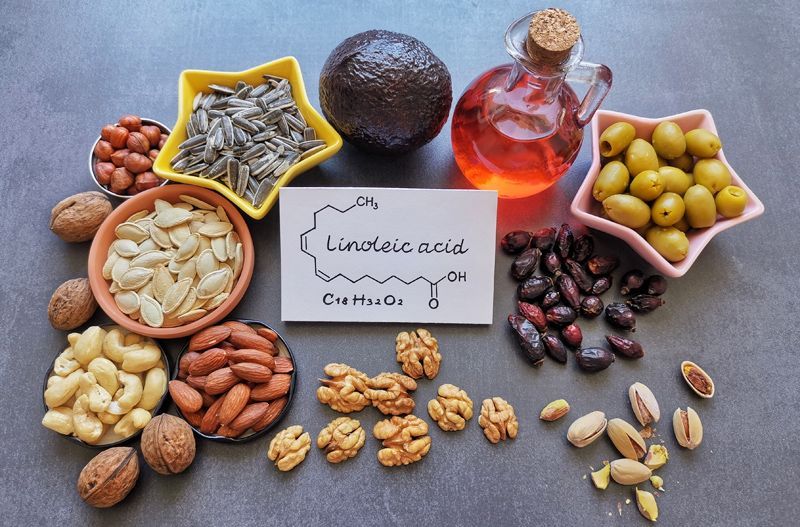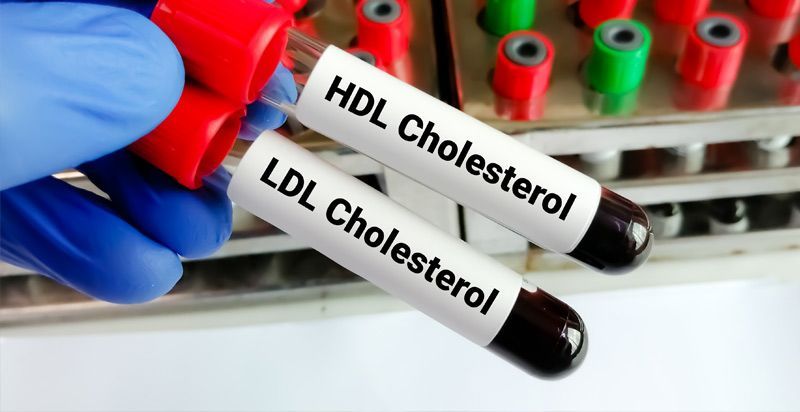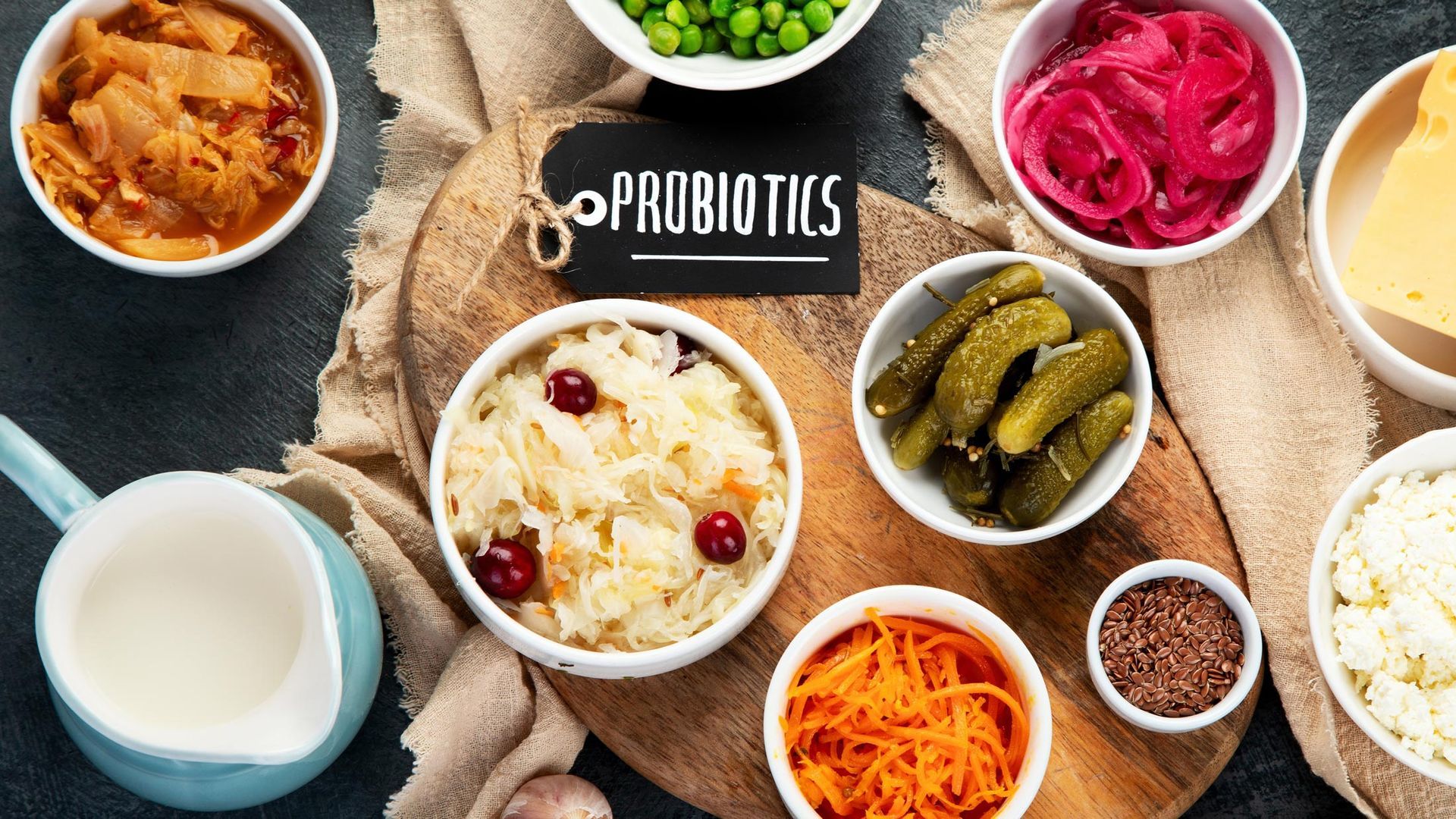Linoleic Acid and Its Impact On Your Health
Learn about Linoleic Acid and its impact on your health from Holistic Chiropractor Dr. Louis Granirer.

In my practice, I focus on identifying food sensitivities to help my patients reduce inflammation, decrease food related bodily "dis-ease," and to help to optimize their overall health. Foods can be medicinal or cause toxic overload, depending on our genetics and our acquired health status. Food science has identified more seemingly healthy foods that can be a culprit of underlying inflammation in the body.
Excessive polyunsaturated fatty acids, or PUFAs, which were once considered relatively healthy, are now being scrutinized as a leading cause of inflammation. PUFAs lack a hydrogen atom and instead have at least one double bond in their carbon chain. Double bonds are weaker than single bonds, more prone to oxidation, and more prone to lose an electron. They are liquid at room temperature. Examples are safflower oil, grape seed oil, and other seed oils. Saturated fats have a complete chain without double bonds and are more stable. They are solid at room temperature. Coconut oil is a saturated fat.
PUFAs are primarily omega-3s and omega-6 fats in our diets. Omega-6 linoleic acid is probably the most toxic of the PUFAs and should be monitored and reduced significantly in your diet. The problem with the modern American diet is that we consume way more omega-6s and linoleic acid vs. Omega-3 fats (from wild salmon, etc).
Omega-3 fats are generally anti-inflammatory and consist of EPA and DHA, which are medicinal for the brain, joints, mood, cardiovascular, nervous, and immune systems etc. Ideally, the ratio should be a 2-to-1 omega-6 to omega-3 ratio for a healthy inflammatory response, but most Americans are consuming a ratio more like 15:1.
Oxidation of PUFAs is influenced by heat. When PUFAs are exposed to heat, such as when you are using seed oils to cook, they produce free radicals. These free radicals can produce aldehydes and other toxic substances, which can change a cell’s structure and cause damage to cell membranes. Olive oil is generally considered a healthier oil because it is high in omega-3. However, once heated, it oxidizes, breaks down, and becomes unhealthy. Never cook with olive oil. If you use it, put it on your food after cooking.
Most of the olive oil out there has been adulterated with seed oils, which is not indicated on their label. Either way, olive oil goes rancid within three weeks of opening the bottle. Avocado oil is often adulterated as well, so research your brand to see if there is any information on adulteration. So, what’s the best oil to cook with? Organic coconut oil takes the top spot as opposed to other oils.
Excessive linoleic acid causes inflammation and inflammatory disease processes. It increases mitochondrial dysfunction, nervous system imbalance, immune system dysfunction, metabolic syndrome, heart disease, thyroid dysfunction, psychiatric disorders, damages the cell lining of blood vessels, depletes the liver of glutathione, increases insulin resistance, increases cancer risk, and many other health-related imbalances.
Americans get approximately 25 percent of their calories from seed oils. Examples of seed oils and vegetable oils (with their percentage of linoleic content) are Safflower oil (70%), Grape seed oil (70%), Sunflower oil (68%), Corn oil (54%), Cottonseed oil (52%), Soybean oil (51%), and Canola oil (19%). All seeds and nuts have linoleic acid, which is fine in low amounts, but too much is where the problem lies. Poppy seeds have one of the highest linoleic acid contents (62%), and macadamia nuts have one of the lowest with 2%.
I don’t think you need to cut out nuts and seeds from your diet completely, but be aware that if you are eating excessive amounts of nuts and seeds and consuming vegetable oils, you could have too high of an omega-6 to omega-3 ratio in your diet. It’s better to reduce your nuts and seeds if you think you are in excess and cut out seed oils from your diet.
Steps to Reduce Your Omega-6/Linoleic Acid Intake:
- Cook with coconut oil, organic beef fat, organic butter/ghee (if you are not sensitive to dairy)
- Reduce your intake of processed foods and restaurant food. If you go out to eat, ask the waitstaff what oils they use to cook your dish. I give you permission to be that annoying customer.
- Check condiment labels, as many use seed oils.
- Do not eat conventional meat such as chicken and pork; they are fed high linoleic acid, which goes into their meat and eggs. The lowest linoleic content in meat is in buffalo, lamb, goat, and deer.
- The lowest linoleic acid in nuts and seeds is in macadamia nuts, cashews, hazelnuts, pistachios, flaxseeds, almonds, and chia seeds.
- Even “healthy” nutrition bars can have seed oils. Check all your “healthy” snack labels for seed oils. Switch to snacks and foods that contain coconut oil and don’t have seed oils. Many of the healthier snack alternatives use safflower oil and cottonseed oil.
- Get your omega-6 to omega-3 ratio muscle tested, or by using online tests, to determine your omega status.
Please don’t hesitate to contact me with any questions about your omega ratio or other health-related questions.
Healthfully yours,
Dr. Lou Granirer





